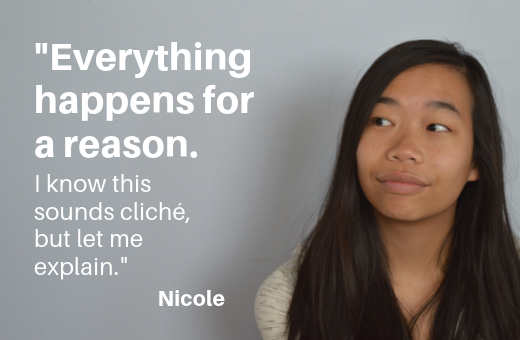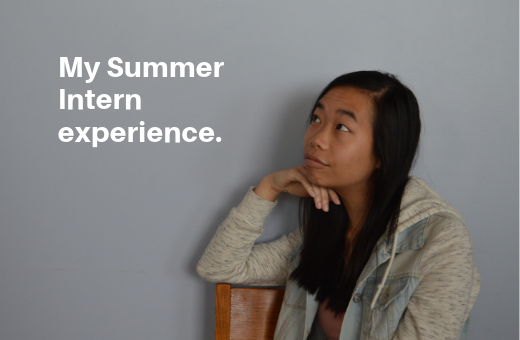By Nicole Hou
Hello! My name is Nicole and I was the Research Intern at Challenge Factory this summer. I’d like to share my recruiting experience and the projects I worked on over the past four months.
How I got here
 My recruitment process was quite untraditional. As a commerce student at Queen’s University, significant emphasis was placed on landing a summer internship in September during on campus recruiting. Many of my peers received offers from multinational corporations, and I found myself applying to roles simply because everyone else was doing the same. My actual interest was in strategy, but I had heard that consulting internships were rare for second-year students. After spending most of September feeling defeated, I stumbled upon a job posting that changed my entire summer trajectory.
My recruitment process was quite untraditional. As a commerce student at Queen’s University, significant emphasis was placed on landing a summer internship in September during on campus recruiting. Many of my peers received offers from multinational corporations, and I found myself applying to roles simply because everyone else was doing the same. My actual interest was in strategy, but I had heard that consulting internships were rare for second-year students. After spending most of September feeling defeated, I stumbled upon a job posting that changed my entire summer trajectory.
Since I am pursuing a certificate in Social Impact, I had access to an exclusive job opportunities board. A boutique consulting firm posted a role and I got in touch with the founder. During our initial phone call, we discussed the potential of a full-time summer internship, as well as a part-time position during the school year. It was exactly what I wanted! My job search was over, or so I thought…
In mid-March, I was informed that the internship was no longer available. I had believed that the position was guaranteed, when it was actually contingent on other business factors. This situation highlights my first lesson for anyone going through the recruitment process:
No job is confirmed unless both parties sign a written contract.
I thought that an oral agreement was binding enough. Luckily, the founder was sympathetic towards my situation and forwarded my resume to the entire network of organizations connected to the Centre for Social Innovation, which yielded several interviews. After three weeks of stress and uncertainty, I was fortunate enough to receive an offer from Challenge Factory. This leads me to the second lesson I want to share:
Everything happens for a reason.
I know this can sound cliché but let me explain. I remember feeling worthless and undesirable because I could not seem to land a single position, even though I knew competition for the spots were high and that I was not truly interested in many of the positions I was applying for. Looking back, I am grateful for every rejection, because each one brought me closer to a role that I did not even believe was attainable as a second-year student: Doing research and strategy work at a consulting firm focused on the future of work. The next time an application doesn’t work out, think of it as a step toward to something that will be better suited for you.
What I worked on
My first project revolved around preparing Lisa, Challenge Factory’s president, for a trip to Norway where she was on a team representing Canada at an international symposium. My work involved creating deliverables such as creating a decision matrix for evaluating potential Norwegian partners and clients and analyzing data from reports submitted by the 34 participating countries.
However, the most challenging task was guiding the creation of a keynote presentation Lisa delivered at the symposium. How could we accurately integrate insights from each national report, while being sensitive to the language, communication and cultural context of delegates from 34 different countries? After several iterations and edits, I was able to collaborate with Kelly, Challenge Factory’s marketing intern, in using concepts of universal design to create the presentation. Lisa shared that the presentation was very well-received, with many country delegates expressing gratitude for how the slides helped make a complex discussion accessible. This leads the next lesson I learned:
Always know your audience.
The audience you cater to shapes everything about your deliverable, from your approach and content, to your language and visual presentation. We were only able to convey our message after considering how each slide could be interpreted under different cultural lenses and perspectives.
For my second project I was tasked with writing a scoping report to determine the viability of a new version of Retain and Gain for public sector managers. Retain and Gain is a series of playbooks written by Lisa and published by CERIC, with the purpose of providing actionable steps for managers to attract and retain talent. In order to assess the viability of the publication, I needed to conduct primary research by interviewing leaders in federal, provincial and municipal agencies.
My report was recently submitted to CERIC and is moving through the approval process. It is exciting to know that my work this summer can lead to the creation of a new Playbook in coming months. To stay updated on its process, click here to subscribe to the Challenge Factory newsletter. The key takeaway I learned throughout this project was:
The size of the company you work for does not determine the size of your impact.
Every step I completed during the scoping process directly affected the final deliverable, which determined whether or not the playbook would be published. As an intern, I was able to take ownership of a project from start to finish, and my recommendations will inform future resources designed to influence career development practices in Canada’s largest employer – the public sector. It was an extremely rewarding experience that I would not have had access to anywhere else.
I continued completing shorter-term projects that were equally exciting, including working with consultants to identify key issues and solutions for a multinational client and consolidating years of field work on Veteran hiring into a single report. Additionally, Lisa had me lead an action plan training webinar for the members that had represented Canada in the international symposium. I taught leaders from both the public and private sector learned a new tool that they will now use in their work. Throughout these experiences, there was one realization that consistently came to mind:
What you learn in school is actually applicable.
Throughout my first two years at business school, there was a set curriculum I had to complete. While some classes covered material I considered directly related to real-life situations, I could not see the direct value in many other courses. When was I ever going to need a memorized list of marketing management orientations? Why do I need to know the difference between the marginal propensity to spend and the marginal propensity to consume?
Upon reflection, all of it was relevant to my work at Challenge Factory. While in school, I was purely focused on the content I was forced to memorize, rather than the experience I was gaining through the learning process. I now see the real value behind my education. For example, group assignments have taught me how to create project plans to keep myself and my team accountable. Individual case studies have taught me how to analyze sets of quantitative and qualitative data to form an optimal recommendation. Presenting my recommendations have taught me how to effectively communicate in person and on paper. The two years I spent studying commerce definitely contributed to the work I accomplished this summer.
What’s next
Well, that pretty much wraps up my time at Challenge Factory! I’m looking forward to enjoying the rest of my summer in Toronto before heading back to Kingston to start my fall semester.
For anyone interested in learning more about Challenge Factory’s internship program or my journey as a business student navigating unique and different paths, I’d love to grab a coffee with you. You can connect with me on LinkedIn.

